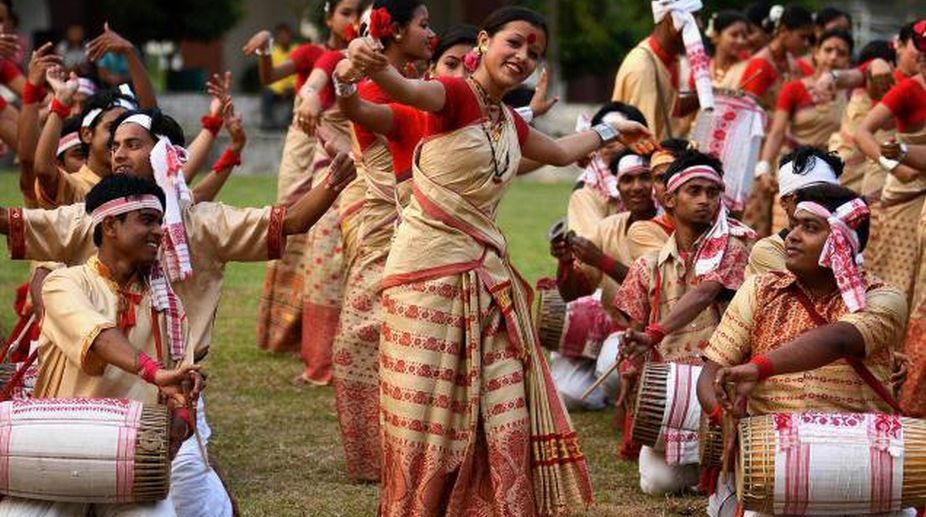PM Modi on 3-day visit to 3 states–MP, Bihar, Assam–from Sunday
According to the Prime Minister’s Office (PMO), the Prime Minister will visit Madhya Pradesh, Bihar and Assam from February 23-25.

Assam on Friday ushered in celebrations for Rongali Bihu, the state's most colourful festival.
Rongali or the Bohag (spring) Bihu starts on the last day of the Assamese calendar month of Chot, which normally falls on April 13 or 14 annually. The first day is known as Goru Bihu and it is dedicated to the cattle.
Advertisement
People in different parts of the state took their cattle to ponds and rivers and gave them a ceremonial bath and rubbed their bodies with 'dighalati pat' (leaf of a plant having medicinal value), which ward off the flies and insects.
Advertisement
People also recited traditional hymns while praying for good health of the animal.
The second day, which falls on the first day of new Assamese Calendar month of Bohag is known as Manhu Bihu. People put on new clothes along with singing and dancing.
On this day, youngsters visit their elders and seek blessings.
'Bihuwan' (the traditional Assamese towel known as Gamocha) is exchanged as a mark of respect.
Although Rongali Bihu is a week-long festival, celebrations continue for the whole month various cultural programmes and functions.
Assam Governor Banwarilal Purohit conveyed his greetings on Friday.
The Governor said: "Let this Bihu, which also marks the advent of Assamese New Year be a harbinger of a new dawn of warm and harmonious relationship and peace, prosperity and progress in the state."
Assam Chief Minister Sarbananda Sonowal also wished the people of the state and hoped the festival will bring lasting peace and prosperity and strengthen mutual bonding.
Saying that the celebrations of Rongali Bihu would bring the people of Brahmaputra and Barak Valley, plains and hills closer, Sonowal expressed optimism that this festival symbolising Assamese cultural identity would strengthen the friendship and camaraderie among the people across ethnicities, caste, creed and religion.
Advertisement